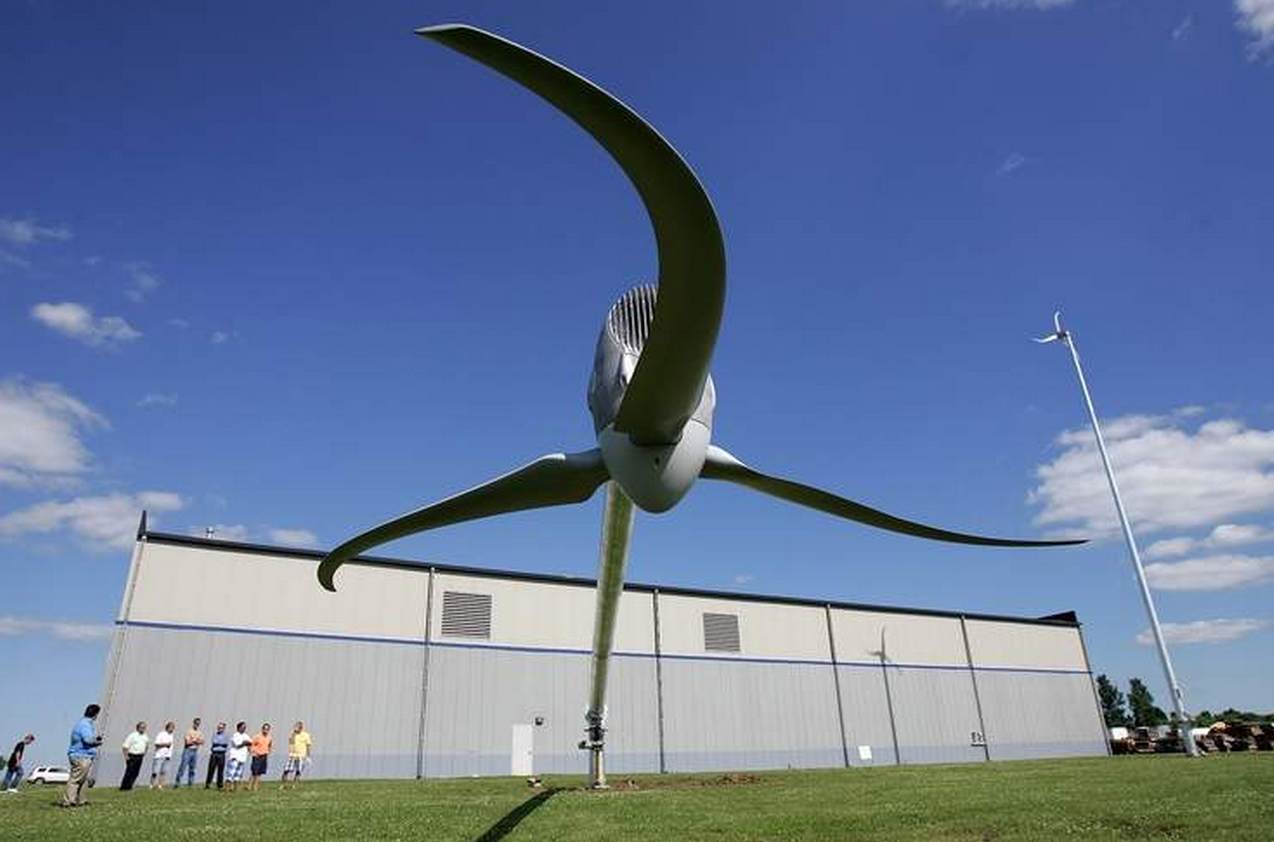WASHINGTON — With less than three weeks left until the 113th Congress adjourns, Iowa lawmakers are calling on their colleagues to pass a wind energy tax credit extension.
Three Iowa Democrats — Reps. Dave Loebsack and Bruce Braley and Sen. Tom Harkin — wrote to members of the House and Senate’s leadership teams urging an extension of the Renewable Energy Production and Investment Tax Credit, or “wind PTC.” Iowa’s Republican Sen. Chuck Grassley has spoken in favor of the measure on the Senate floor.
Loebsack led a call to action last week, underscoring the urgency by saying the tax break is vital to an industry that employs 80,000 Americans, including more than 3,000 in Iowa.
“The continued expiration of the PTC causes slowdowns at manufacturing facilities and could lead to additional layoffs,” Loebsack said. “Like all businesses, the wind energy sector needs stability and predictability so long-term investments and business decisions can be made.”
The credit, which expired late last year, gave wind and other renewable energy companies tax breaks during their first 10 years of operation. Companies also could elect to take a 30 percent investment tax credit.
The wind PTC is bundled under the EXPIRE Act, which includes 60 other tax-related provisions, such as credits for alternative fuels, energy efficient homes and health coverage. Grassley said the wind PTC needs to be in this group to pass.
“Wind (advocates) is suspiciously quiet at this point,” Grassley said Tuesday during an interview with radio broadcasters in Iowa. He predicted that tax extensions would reach the Senate floor in the next two weeks. In the meantime, leaders of key House and Senate committees have had informal meetings to try to reach an agreement, according to Grassley.
Senate Majority Leader Harry Reid, D-Nev., also has said he hopes to bring tax credit extensions to the floor before the end of the lame-duck session.
“Letting these critical incentives expire is not an option. I’ll bring them to the floor before the end of this year for a vote,” Reid said in September at the National Clean Energy Summit in Las Vegas.
Iowa leads the country in energy installations and manufacturing, with more than 26 percent of the electricity generated by wind energy, according to the American Wind Energy Association. The state ranks second in the number of wind-related jobs, with more than 3,000, according to Environmental Entrepreneurs, a Chicago-based group that promotes environmental policy.
Clean energy projects already have been delayed or canceled because of uncertainty, according to Gail Parson, Midwest states advocate for Environmental Entrepreneurs. The industry also has seen a drop in installations, which Parson said would continue if the wind tax credits are not extended.
“It would remove that market certainty that would eventually lead to hiring less workers,” Parson said.
Some Tea Party groups have been active opponents of wind energy. Former Rep. Ernest Istook, D-Okla., the American Jobs Alliance, Tea Party Nation and other groups hosted a lame-duck policy agenda meeting for conservative groups in mid-November. The first topic of discussion introduced by Istook, as he stood at a podium next to a giant yellow blowup duck, was opposition of renewing wind tax credits.
Representatives from American Jobs Alliance, a nonprofit group comprised of mostly Tea Party members, said that wind energy is crony capitalism and that it’s meant to benefit Wall Street, not average farmers.
“They’re pure giveaways to special interest,” said Curtis Ellis, executive director of American Jobs Alliance, during a phone interview Tuesday. “That’s corporatism. The big boys get special tax breaks and special treatment in Washington.”
Grassley said that opponents of wind energy have tried repeatedly to undermine the industry. “I’m not surprised that they’re at it again,” he said.
He said that Congress needs to address tax reform, but doesn’t believe it can be accomplished in the lame duck session.
“I agree that the tax code has gotten too cluttered with too many special interest provisions,” Grassley said on the Senate floor last week. “But just because we haven’t cleaned up the tax code in a comprehensive way doesn’t mean that we should pull the rug out from under domestic renewable energy producers.”
For now, Grassley said, the focus should be on extending expiring provisions to “give us room to work toward that goal.”


